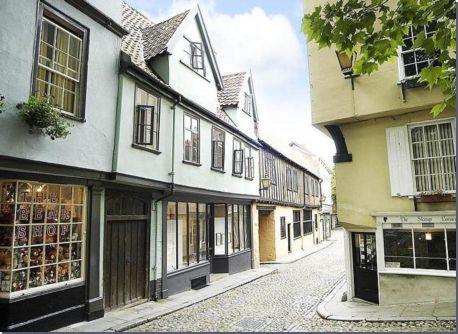I come back to Knowing after a long gap. I stopped because it all got too personal and I switched to daily 'blog drafts' which remain locked in my computer.
But to summarise, the personal comprised health issues, for which I am now waiting for a second operation at Papworth Hospital in Cambridgeshire. It also has the unexpected but delightful company of a granddaughter, the lovely serene Molly Ava, who lives 3 miles away and gives us all a reason to smile. It has expanded my places to write to 2 rooms upstairs, one on the cool back side of the house, and the other on the sunny front overlooking the whole village. The big Leylandi trees have been cut down for firewood and the autumn colours are just wonderful. I have stacks of apples in the kitchen waiting to be cut up and put in the freezer, which makes me seem much more domestic than I am. There is an uneasy truce around and a change afoot of which I can say no more.
I found this Australian lady finding herself in the very village and area in which I live, a rather different experience to my own, but very interesting to see your own surroundings from a different enquirying mind.
Lost in Arcadia
I am re-reading my battered old copy of Pedagogy of the Oppressed by Paulo Freire which I 'deselected' from the library I ran some years ago. That is because my studies are centering on a 'philosophy of development' at present - how does culture tackle the representation of poverty...and whose culture does it use, morally 'universalise' and all that kind of stuff.
My most recent film - 2 actually, 1 documentary and 1 fiction at the Barbican annual Brazilian Film Festival, run each year by Adriana Rouanet (PHD student at Kings College, London). The theme this year was Urban Tales. Both the films featured a story 'within' a story. Jardim Angela was a documentary of youngsters in Sao Paulo making their own films with professional help, and followed the story they devised and the most talkative member of the team as he expressed his experience and life in a gang. The second was Basic Sanitation (Saneamento Basico,2007) which I had been waiting sometime to see, which is a fictional story of a group of responsible young adults who make a very bad film about a monster (Actually ironically a kind of 'Creature of the Black Lagoon') because they cannot get the money for a sewage system which is needed for their village. It was a wicked ironic working of the 'system' in Southern Brazil by Jorge Furtado, who was there to answer questions afterwards. But it was the full audience that unwittingly caused a bigger laugh. Most Brazilians in London who come to events like this festival are young educated professionals and students, wealthy or middle class and from the South. (There are other Brazilians working in London in kitchens and cleaning and as we all know as electricians - the festival had a promotion for the Jean Charles Menezes film -but they do not go to this kind of event. )
One young lady congratulated Jorge on making a film about 'her Brazil' - expressing delight that it was not all the stuff about gangs and violence and poverty that the British think from the Brazilian films that are usually shown in the cinema here. Jorge made a comment on 'para ingleses ver', and then said he had been told the apopcrypal story that it is thought that the Queen of England thinks that the world smells of fresh paint, because where ever she visits that is what she can smell. It was such a wonderful and ironic response, when the real subject of his film was the inability of the Brazlian system to provide basic sanitation in a village that in other respects looked like Switzerland, much less for the crowded and disgusting hovels that are home to millions of much less privileged Brazilians. At one point in the film there is actually a discussion on how the smell of flowers can be replicated in a film at all - a very ironic point about the whole process of how film represents, or does not.
The English are not blind when they visit Brazil. What they can't understand is why the wealthy Brazilians they meet in London don't want to do anything about it but ring their hands, make films and collect money for charities. That is a little harsh. But you can see why it was funny in a black kind of way. I am sure Jorge Furtado will remember it. I amused myself by asking the young men next to me (Brazilian film students) if they thought the sequence of motorbike riding in the film was from a 'romantic 1950s chanchada'. They had the wit to ask Jorge what his influences were - he told them Billy Wilder. It was in fact a homage to Walter Salles film about Che - Motorcycle Diaries.
quinta-feira, 29 de outubro de 2009
Assinar:
Comentários (Atom)


